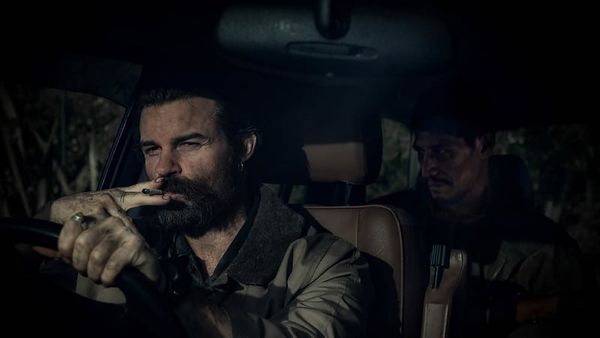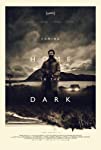Eye For Film >> Movies >> Coming Home In The Dark (2021) Film Review
Coming Home In The Dark
Reviewed by: Jennie Kermode

In the opening scene of James Ashcroft’s Coming Home In The Dark, we see an empty car at the side of the road. One of its doors is hanging open but there’s no sign of anyone nearby. Has there been an accident? It’s an unsettling touch, yet the sort of thing drivers witness all the time and soon forget. As a family car rolls on by, its inhabitants barely notice – and this tells us all we need to know to understand layer after layer of the film.
“I always knew there was something,” Jill (Miriama McDowell) will say later, reflecting on their life together, but you wouldn’t know it from seeing her and Hoaggie (Erik Thomson) enjoying their trip together with her teenage sons Maika (Billy Paratene) and Jordan (Frankie Paratene). They’re totally at ease as they wander through the beautiful New Zealand/Aotearoa countryside, despite one of the boys acting up. Both teachers, they take these things in their stride. The weather is good and life feels completely normal until, from out of nowhere, come the gun-toting psychopath Mandrake (Daniel Gillies) and his lowering accomplice Tubs (Matthias Luafutu). It will never feel normal again.
The past two decades have seen a slew of films in which ordinary families are terrorised by psychopaths for no particular reason, drawing on a deep-rooted cultural fear of the unknowable other in our midst, but the genre has long since ceased to offer anything fresh. Fortunately, this film goes somewhere quite different, as a change remark quickly raises questions about the supposed randomness of this encounter. Whilst we travel through a long night on the road, as dark as it gets, we are also travelling back into the past. Bit by bit, writer/director James Ashcroft queries who exactly these characters are. Do they know?
Although Mandrake and Hoaggie do most of the talking, it is Jill and Tubs who seem to be doing the thinking and to understand the situation on a deeper level. She being female and he Maori, both are caught up in white men’s conflicts. Ashcroft isn’t subtle about how his story pertains to the real world and neither should he be, in 2021 of all years. He is cautious in his analysis, however. Jill’s allegiances have wider relevance. For much of the time, even when he has a gun in his hand, Tubs feels powerless to do anything but observe.
Ashcroft is interested in where power lies and how and when we decide to use it. Various forms of dissociation factor into the story. The power Mandrake possesses stems not merely from his gun or sometime callousness but from his ability to move easily between different frames of reference; he is, however, not alone in having done so. Although the story underlying these ideas is not particularly new – indeed, its familiarity is part of what makes it so horrifying – it is addressed with a depth and sincerity rare in the genre, in a film which is beautifully shot and makes potent use of music.
With long, hypnotic sequences which speak to that feeling one can experience when driving late at night, somehow separate from the ordinary world, Coming Home In The Dark takes us to familiar places and renders them strange. It’s a timely film in a country which is only now beginning to come to terms with its past, for a wider culture only just beginning to acknowledge its relationship with violence. When the sun rises, much remains uncertain, but perhaps certainty was part of the problem.
Reviewed on: 29 Sep 2021















